Math tips for numerically challenged journalists
For a lot of journalists, dealing with numbers and math can be a little scary. There’s a reason many reporters will say they went into journalism instead of finance or engineering. It’s a love of words and language.
But journalists need to have a grasp of the basics since working reporters deal with math pretty much every day. Numbers make up the foundation of many stories – the municipal project is over of under budget, the politician is some percentage up or down in the polls, violence rates this year are over or below the ten-year average. So there’s really no choice but to get your head around some fundamental math concepts.
onMedia’s Kyle James, for whom math can be a struggle, offers this quick summary of a few calculations you need to know to do your job well and where you can go online to get help when all those numbers just start swimming in your head.
![]() read more
read more
How to improve your quotes and voice clips
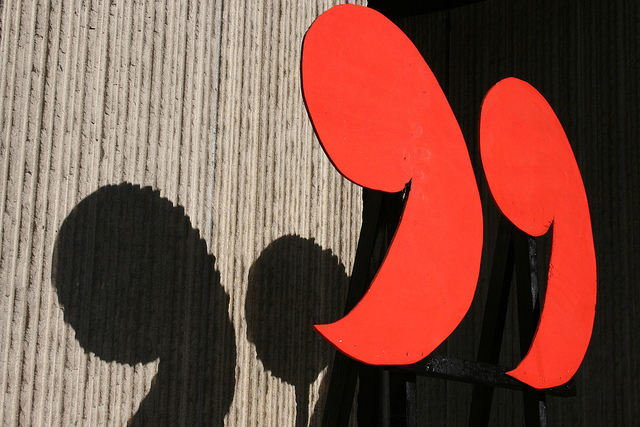
(photo: flickr/Quinn Dombrowski CC:BY-SA)
Almost every news or feature story – whether it’s for print, broadcast or online – benefits from having good quotes, voice clips or sound bites.
Quotes directly express the views of the people you talked to, lend credibility to your story, and liven up your writing. Quotes are like a spice that adds flavor and zest to your story. Without them, while your piece might well have a lot of informative facts, it can be pretty bland.
But figuring out exactly which bits to pull from your interviews and put in your story can be challenging even if you are an experienced reporter.
onMedia’s Kyle James has trained radio, print and online journalists in countries around the world for years. In this post, he offers a few guidelines on keeping an eye out for what’s quotable and what’s not.
![]() read more
read more
The art of being persistent in an interview
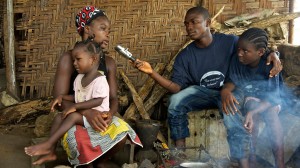 Something even experienced journalists struggle with is asking a question again when it isn’t answered the first time or asking follow up questions seeking clarification. This is especially true of journalists working in cultures where it is deemed impolite to question those in authority or older people. OnMedia has some tips on how to be persistent and get the answer you, and your viewers, need.
Something even experienced journalists struggle with is asking a question again when it isn’t answered the first time or asking follow up questions seeking clarification. This is especially true of journalists working in cultures where it is deemed impolite to question those in authority or older people. OnMedia has some tips on how to be persistent and get the answer you, and your viewers, need.
![]() read more
read more
How journalists can edit their own work
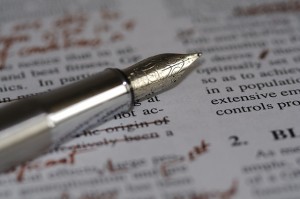
Photo: flickr/Nic McPhee
These days, journalists have fewer editors looking over their work. Some media outlets have almost done away with copy editors all together. That means it’s more important than ever for journalists to learn how to self-edit, and turn in clean, accurate copy. onMedia’s Kyle James has some tips on finding your inner editor.
![]() read more
read more
Reporting on climate change: Part I
Climate change was once a niche topic; now it’s as big as the world. And, it’s a challenging one for journalists, especially for those without a science background. But since climate change could well be the story of the century, it’s important to cover it well. In this two-part series, Kyle James has tips on how to approach climate reporting, make your stories appealing to the general public, and avoiding common mistakes.
![]() read more
read more
How to spell check in different languages
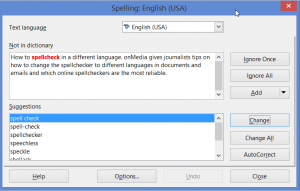
As an editor, I am surprised at how often reporters send me articles that they obviously haven’t run through a spell checker beforehand. And it’s usually journalists who work in a language other than English who fail to spell check – even though they might need all the English spelling help they can get.
With so many free tools and dictionaries available online, there is really no excuse. A reporter’s job is all about getting the facts correct. And if you send off an article, script or even an email full of spelling mistakes to your editor, how can they trust you to get the other facts right?
onMedia offers some tips on how to change the spell checker to different languages in documents and emails and which online spell-checkers are the most reliable.
![]() read more
read more
Journalists need to get better at spelling names
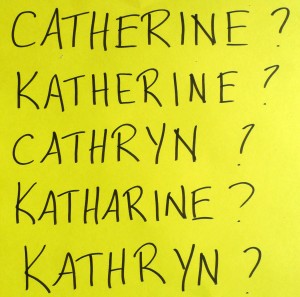 Journalists (and experienced ones at that) often misspell people’s names. This doesn’t just make reporters look sloppy, it also raises doubts about the accuracy of the other information in the report. In the first of two posts about spelling, onMedia’s Kate Hairsine gives some tips on how journalists can spell people’s names right.
Journalists (and experienced ones at that) often misspell people’s names. This doesn’t just make reporters look sloppy, it also raises doubts about the accuracy of the other information in the report. In the first of two posts about spelling, onMedia’s Kate Hairsine gives some tips on how journalists can spell people’s names right.
![]() read more
read more
Don’t panic and calm down during interviews!
It happens to even experienced journalists – faced with a famous person or someone we admire, we get so nervous that we forget to do our job properly. In the latest post of our series on difficult and challenging interviews, journalists Marina Soboleva and Armine Agaronyan reflect on two situations where talking to prominent people left them tongue-tied. They offer some advice on how not to fall into the same trap.
![]() read more
read more
Interviews: how to handle requests for questions in advance
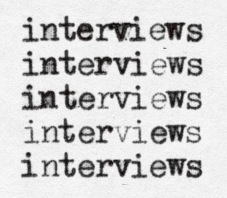 “What should I do if an interviewee wants to see a list of questions before the interview?”
“What should I do if an interviewee wants to see a list of questions before the interview?”
This is a question that comes up many times in journalism training courses.
Journalists around the world are often faced with the situation where a person they want to interview asks, or even demands, to see a written list of the questions before the interview can take place. It’s also a common request from pushy public relations consultants or the press staff of politicians.
Even journalists just starting out in their career instinctively know this isn’t a good idea. But they and more experienced journalists often lack strong arguments to convince potential guests to do an interview without seeing the questions first.
![]() read more
read more
Election reporting does and don’ts – after polling day
In some countries, election results are announced within a day, in others it can take a week or longer. This period around the release of the results is often the most tense, and can be marred by violence. In the third part of our series on election reporting, DW Akademie’s Kate Hairsine brings you some dos and don’ts for reporting elections after polling day.
DO be responsible when reporting incidents of violence
It is important to inform people about violent incidents, but you need to do so in a responsible way. Following the 2007 elections in Kenya, the local media was criticized for further inflaming violence.
– Always verify facts before reporting: Where exactly did the incident take place? Who was involved? How many people were involved? Were people killed or injured? What triggered the incident?
– Try to find several sources of information (witnesses, journalists on location, police, army, doctors at the local hospital). Name your sources in the report (and don’t rely on SMS messages from people at the scene who aren’t considered reliable sources!)
– Try to get comments on the violence from people from different ethnic groups and different sides of the political spectrum (but do not air calls for retaliation or more violence)
– Don’t use emotional language or comment on the incident yourself
– Local language stations may be criticized for their neutral broadcasting as they are often expected to share community views. Explain your reasons for being neutral on air
DO take care when reading out SMS messages
Many radio and television stations read out SMS messages or have an SMS ticker. These might represent people’s opinions about the elections or results, but hateful messages have no place on air. Also, be balanced by reading out messages from diverse areas, or from people supporting different parties or groups.
DO cut off callers using hate speech on air
Talkback radio gives people the opportunity to be heard. Plus it’s a lively and cheap way to get diverse opinions on air. But hosts need to be extremely careful that their show doesn’t inflame tensions.
– Cut off callers (and politicians) who use hate speech, ethnic baiting or call for violence
– Explain to the listeners that cutting off such callers is in line with station’s policy and your radio won’t support violent talk (so that you don’t seemed biased)
– Ask listeners to call in with their comments about hate speech
– While some stations argue that airing inflammatory language is good for ratings, the risk of conflict in this post-election period is just too high. Responsibility comes before ratings!
DO prepare messages of peace
If you live in a country with a history of conflict, peace messages, songs and jingles featuring prominent individuals (imams, priests, musicians, movie stars, sports stars, even gangster groups who have promised not to stir up trouble) can go far to calm tensions. Alternatively, ask children for messages of peace. Another idea is to get different groups of people, such as the elderly, market women, or school children, to sing the national anthem (or another song associated with national pride) and play the different versions together with peace messages
DO continue to monitor the counting
Just because the polling day is over, it doesn’t mean that the media’s watchdog role is finished. Things to check:
– Can observers, the media and nominated political party representatives freely enter all tally centers (including at local, district and and regional levels)?
– Do the centers have adequate lighting and security?
– Is the counting taking longer than normal? Why?
DO put the results in context
When the results are finally announced …
– Seek comments from the winners and losers
– Mention the final turnout figure
– Get some reactions from a diverse cross section of people on the street.
– Add some independent analysts and comments from international and domestic observers
DO analyze the results
Your job isn’t over when the results are announced.
– How much did someone win by? Who mainly voted for them (male, female, old young, a particular ethnic group)? Has this changed since the last elections.
– What percentage of people voted? Were there particular groups who didn’t vote? Why? Has this changed from the last elections?
– How many invalid votes where there? Where their regions with more invalid votes? How does this compare to last election?
– What are the country’s prospects under the elected leadership in various fields, such as the economy, law and internal security?
DON’T broadcast political press releases about vote rigging without context
Politicians who have lost the vote (or look like loosing) often favor the strategy of putting out a press release alleging the elections were rigged (which may or may not be true). Don’t just read out the whole press release on air. Rather
– Summarize the allegations using neutral language
– Add information from independent election monitors
– Seek a comment on the allegations from the electoral commission. If they say they will address the comments a later press conference, mention this in your reporting
DON’T forget to continue to monitor the government
As an election reporter, you have a sound grasp of what promises the new government made during its campaign so you are ideally placed to follow up whether its living up to those promises.
For more information, check out UNESCO’s list of online election reporting resources as well as the ACE Electoral Knowledge Network, which is an amazing source information about elections and electoral systems worldwide.
I also highly recommend the “Media & Elections” handbook as well as the “Election Reporting Handbook” by the International Journalist Federation



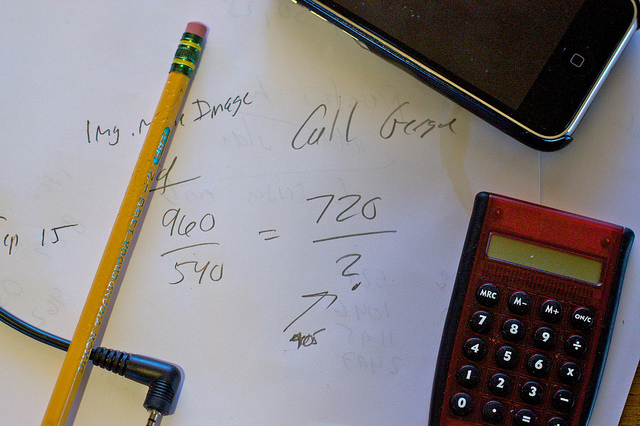


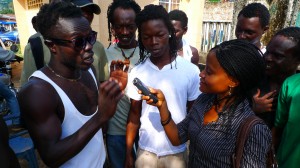




Feedback